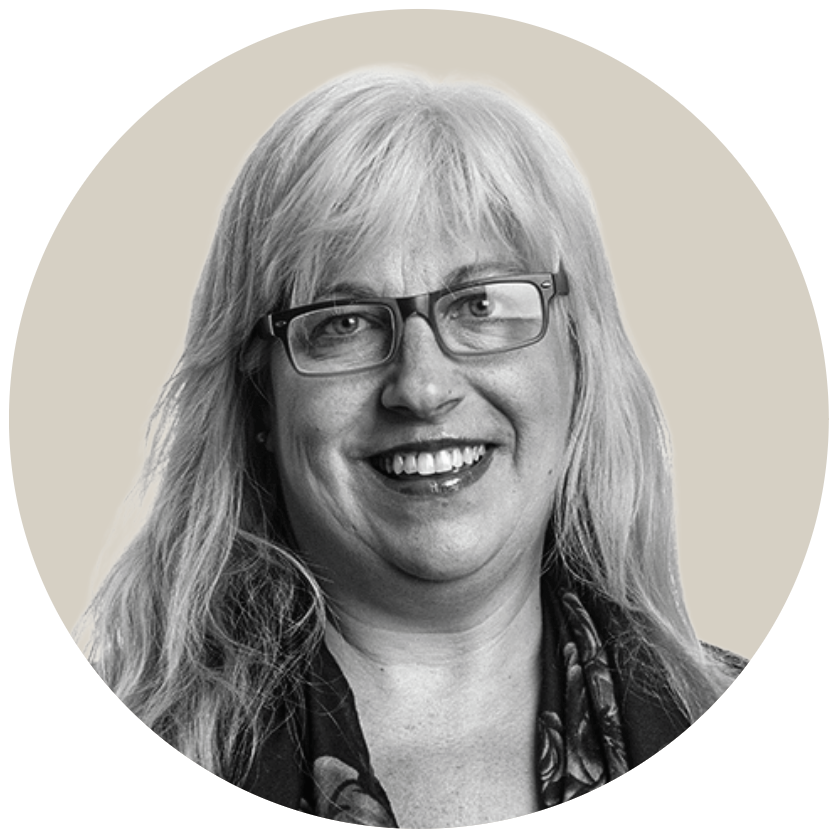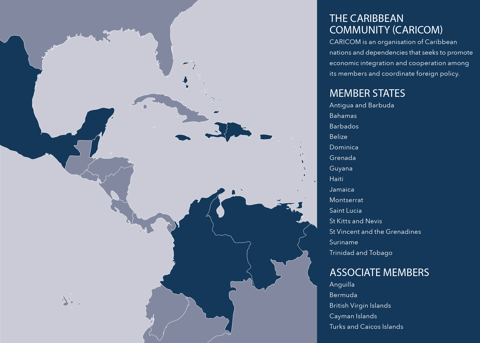
Jennifer Wall
Pharmacovigilance Specialist, UMC

Participants in CARICOM 2018.
Monitoring medicines is a resource challenge for small Caribbean states’, but a WHO-UMC workshop laid out the framework for a regional approach to drug safety and regulation.
A chorus of crickets and frogs kept up a constant accompaniment to the Post Market Surveillance and Pharmacovigilance Workshop organised for the Caribbean Community (CARICOM) in Georgetown, Guyana, on 24–26 July 2018. The purpose of the meeting was to raise awareness of the tools available to CARICOM states for carrying out post-market surveillance and pharmacovigilance. These include regional and global programmes that support regulatory action to ensure access to safe medicines, such as the regional system for reporting adverse drug reactions and substandard and falsified products (VigiCarib), and the regional post-market drug quality testing programme at the Caribbean Public Health Agency (CARPHA).
Participants from the Bahamas, Belize, Guyana, Haiti, Jamaica, Saint Lucia, and Trinidad and Tobago joined representatives from CARPHA and the Organization of Eastern Caribbean States Pharmaceutical Procurement Services for training in the WHO Global Surveillance and Monitoring System (GSMS) and the WHO Programme for International Drug Monitoring.
“An opportunity to gain insight into the post-market surveillance situation in the region.”
“The workshop gave us the opportunity to gain insight into the post-market surveillance situation in our region, and to collectively work to enhance it,” said Danini Marin, director of the Drug Inspectorate Unit at the Ministry of Health in Belize.
The workshop included presentations and case studies on post-market surveillance by the WHO Safety and Vigilance team. Topics included reporting suspected adverse drug reactions, developing national pharmacovigilance plans, quality surveys, detection technologies, and taking necessary steps for regulatory action.
The WHO experts highlighted that due to the growth of global networks for manufacturing and distributing medicines, reporting substandard and falsified products into GSMS is not only important for local public health but may also alert officials across continents to the same dangerous products in their markets.
UMC staff took a closer look at the WHO programme and the evolution of a functioning pharmacovigilance system. Most CARICOM/CARPHA countries are today associate members of the programme, three of which – Guyana, Dominica, Saint Vincent and the Grenadines – successfully entered initial reports following the meeting. With the Bahamas, Belize, and Trinidad and Tobago yet to join, the small African island nation Cape Verde was suggested as an example of what can be accomplished. Another workshop dealt with issues such as in-country reporting, medical advisory committees, channels to alert the community, CARPHA as a resource for reporting, and newsletter writing.

The monitoring of medicines is somewhat limited in the Caribbean due to a lack of resources, and limited health and regulatory budgets. VigiCarib is a regional system that governments can use to report adverse drug reactions and substandard and falsified products. VigiCarib staff advise on appropriate courses of action to take, and share reports through the network, as many countries have the same products on their markets. VigiCarib staff can also report safety issues on behalf of CARICOM/CARPHA member states to GSMS and the programme when governments are unable to do so. This helps augment reporting from the region, which is greatly under-represented globally. VigiCarib has already submitted backlogged reports to VigiBase, the WHO global database of individual case safety reports, elevating some countries from associate to full members of the programme.
CARPHA Medicines Quality Control and Surveillance Department (MQCSD) is implementing a risk-based post-market surveillance quality testing programme at its lab in Jamaica. The intention is to help member states get feedback on products tested in their markets so they can take necessary action. This new approach represents a more effective and sustainable approach to drug testing in the region because it focuses resources on the highest risk products. MQCSD is currently working with Guyana and the Organization of Eastern Caribbean States Pharmaceutical Procurement Service as a pilot for this effort and, if successful, will expand it to other member states soon.
Workshops led by UMC and the Pan American Health Organization discussed key elements in building national pharmacovigilance plans. The exercise helped to show that although setting up these systems may seem daunting, the first steps are relatively straightforward and do not need to be resource intensive. Many participants left the meeting determined to bolster reporting and make the most of the available networks. They also noted that setting up pharmacovigilance systems would not be difficult, as it was simply a case of reorganising resources.
Read more:
WHO and UMC introduce new VigiBase access conditions, enhancing data sharing clarity and stakeholder confidence in global pharmacovigilance.
20 March 2025
Since its introduction 20 years ago, UMC’s adverse event reporting system has become the world’s most widely used safety surveillance toolkit for medicines and vaccines.
25 November 2024
Since 2021 PAHO has assisted 12 countries in importing more than 270,000 historic and new cases to the global database.
27 March 2025